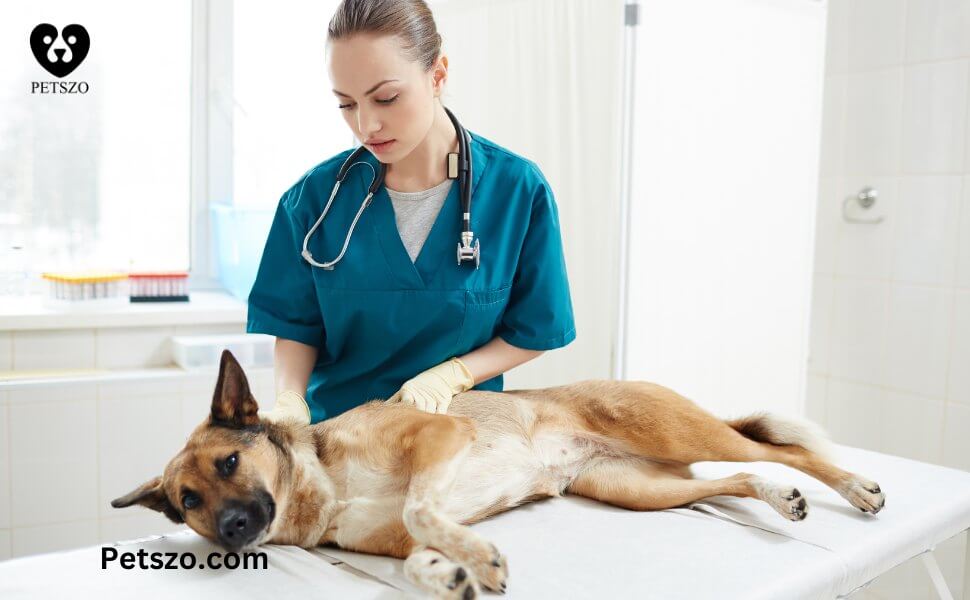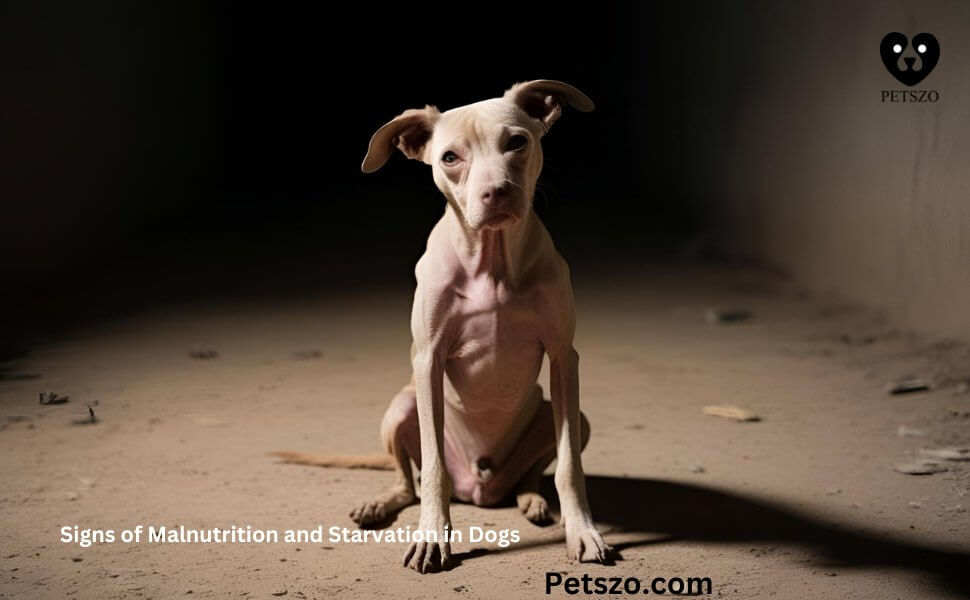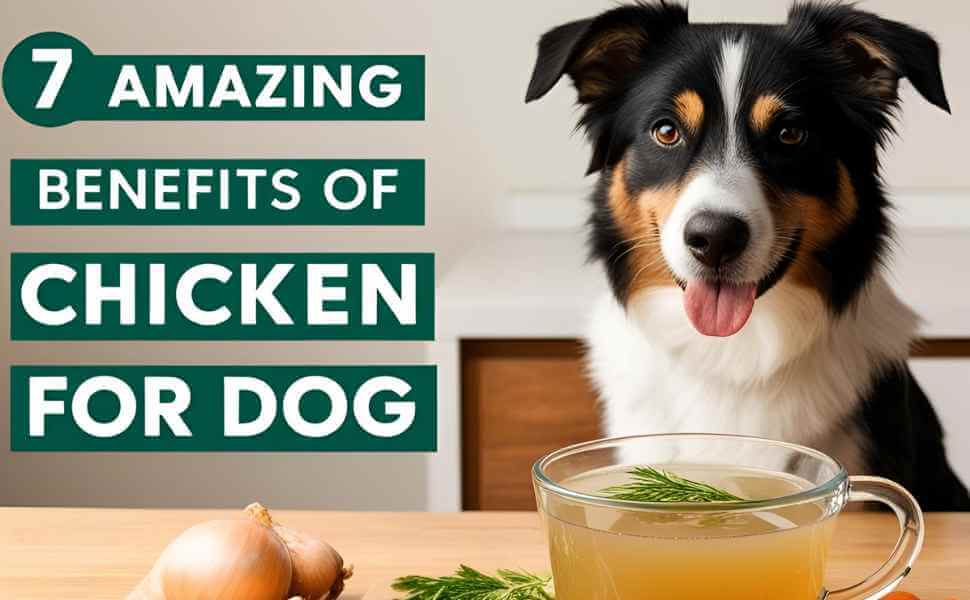Despite their well-known love of food, dogs may refuse to eat for various reasons, including stress, illness, or other issues. How long can dogs go without food? It can be dangerous for dogs to go without food. Pet owners must know their boundaries to protect their dogs’ health and welfare.
This page addresses how long dogs might survive without food, survival strategies, signs of malnutrition, and professional advice on what to do if your dog refuses to eat.
How Long Can Dogs Go Without Food in Different Situations?
Dogs are resilient animals, but they cannot survive indefinitely without food. A healthy adult dog can usually go 5 to 7 days without food, but this varies depending on breed, age, health condition, and water availability. While some dogs may survive up to two weeks without food, prolonged starvation can lead to organ failure, immune system breakdown, and extreme weakness.
The situation becomes more critical if a dog is sick, elderly, or a puppy. Puppies have a faster metabolism and can become dangerously weak within 12-24 hours of not eating. On the other hand, senior dogs or those with underlying health conditions may not survive longer than 3-5 days without proper nutrition.
However, water is far more essential than food. A dog can only survive 2-3 days without water before severe dehydration, heatstroke, and organ damage set in. If a dog refuses to eat for more than 48 hours, seeking veterinary attention is crucial.
Ensuring your pet has regular access to fresh water and balanced nutrition is vital for their long-term health and well-being.
How Long Can Healthy Dogs Go Without Food?
A healthy adult dog can typically survive 5 to 7 days without food, provided they can access clean water. In extreme cases, some dogs may endure up to two weeks, but this is not ideal and can lead to severe health complications. While dogs are naturally resilient, prolonged fasting can result in muscle loss, organ failure, and a weakened immune system.
However, water is far more crucial than food. A dog can only survive 2 to 3 days without water before facing severe dehydration, lethargy, and organ damage. Even if a dog skips meals for a few days, they should always have access to fresh drinking water to prevent fatal consequences.
A healthy dog’s refusal to eat for more than 48 hours may indicate stress, illness, or digestive issues. Monitoring their behavior and consulting a veterinarian are highly recommended in such cases. Maintaining a balanced diet, proper hydration, and regular feeding are essential to keeping your dog healthy and active.

How Long Can Sick Dogs Go Without Food?
A sick dog cannot survive as long without food as a healthy one. While a healthy adult dog may endure 5 to 7 days without food, a sick dog’s survival time is significantly shorter—typically 3 to 5 days, depending on the severity of its illness. If the dog is also dehydrated or has an underlying condition like kidney disease, liver problems, or infections, it may weaken much faster.
Unlike food, water is crucial for survival. A sick dog can only survive 2-3 days without water before dehydration becomes life-threatening. Dehydration worsens many medical conditions and can lead to organ failure, weakness, and shock.
If a sick dog refuses to eat for more than 24-48 hours, it’s a medical emergency, and veterinary care is essential. Encouraging eating with soft, palatable foods, bone broth, or hand-feeding may help, but persistent refusal requires immediate professional attention. Proper nutrition, hydration, and medical care are key to a sick dog’s recovery and overall well-being.
Puppies have a much higher metabolism than adult dogs, meaning they cannot go long without food. While a healthy adult dog may survive 5-7 days without food, a puppy can only go 12 to 24 hours before serious health risks arise.
Because puppies are still growing and lack fat reserves, they require frequent meals to maintain their energy levels. If a puppy doesn’t eat for too long, it can develop hypoglycemia (low blood sugar), weakness, dehydration, and organ failure. Small breed puppies are especially vulnerable and can collapse or go into shock within a few hours of missing meals.
Water is equally important—a puppy can only survive 24 hours without water before dehydration sets in.
If a puppy refuses to eat or drink for more than 12 hours, immediate veterinary care is necessary. Providing soft, digestible food, keeping them warm, and offering small, frequent meals can help ensure their health and growth. Never leave a puppy without food or water for an extended period!
Factors That Affect How Long Dogs Can Go Without Food
One can overcome this problem without worrying about the various negative factors, such as weakness, discomfort, dehydration, and other conditions. A weighted average of 5-7 days can be maintained without worrying about the shortened overvaluation periods. Usually, a risk assessment of 5-7 days is not necessary, but other factors can occur during these short, dramatic periods.
Dog’s Age, Breed, and Health Condition:
A dog’s capacity to endure without food is influenced by age, breed, and general health. While a healthy adult dog may survive 5-7 days without food, puppies, seniors, and dogs with medical conditions are at a much higher risk if they go without nourishment for even a short period.
Age:
Puppies can survive only 12-24 hours without food. They have a fast metabolism and require frequent meals to prevent low blood sugar (hypoglycemia) and weakness.
Adult Dogs can last 5-7 days if they have access to water, though prolonged starvation leads to muscle loss and organ damage.
Senior Dogs typically survive 3-5 days without food, but due to their weaker immune system and potential medical issues, they deteriorate faster than healthy adults.
Breed:
Small Breed Dogs (Chihuahuas, Yorkies, Pomeranians) have a high metabolism, meaning they burn energy quickly and are more prone to hypoglycemia if they go without food for too long.
Large Breed Dogs (Labradors, German Shepherds, Huskies) have more fat reserves and can survive slightly longer, but prolonged starvation weakens their immune system and muscles.
Working and Active Breeds (Border Collies, Siberian Huskies) burn more calories and require frequent meals. Without food, they may become weak much faster than less active breeds.
Health Condition:
Healthy Dogs can survive 5-7 days without food but will experience fatigue, weight loss, and organ stress.
Dogs with Medical Conditions:
- Diabetic dogs need regular meals to maintain blood sugar levels. Without food, they can become dangerously weak within 12-24 hours.
- Dogs with kidney or liver disease cannot go without food for long, as it can worsen their condition. 2-3 days of starvation can be fatal.
- Dogs recovering from surgery or illness need a nutrient-rich diet to heal. Lack of food can slow recovery and lead to complications.

Hydration Levels – Why Water Matters More Than Food
Water is far more essential for a dog’s survival than food. While a healthy adult dog may survive 5-7 days without food, they can only last 2-3 days without water before severe dehydration, organ failure, and death set in.
Water is critical in digestion, circulation, temperature regulation, and organ function. Without enough hydration, dogs quickly become lethargic, weak, and unable to regulate their body temperature, leading to heatstroke, kidney failure, and shock. Symptoms of dehydration include dry gums, sunken eyes, loss of skin elasticity, excessive panting, and rapid heart rate.
If a dog refuses to drink water for more than 24 hours, immediate veterinary care is necessary. Even if a dog isn’t eating, access to fresh water is crucial to prevent life-threatening complications. Always ensure your pet has clean, fresh water to maintain their health and well-being.
What Happens When Dogs Go Too Long Without Food?
When dogs go without food for an extended period, their body begins to break down stored fat and muscle for energy. While a healthy adult dog may survive 5-7 days without food, prolonged starvation leads to severe health complications and can be fatal.
Stages of Starvation in Dogs
- First 24-48 Hours.
- The dog may experience low energy levels, weakness, and hunger pangs but can still function normally if they have access to water.
- 3-5 Days Without Food.
- The body starts breaking down fat reserves for energy, leading to weight loss, lethargy, and muscle weakness.
- 5-7 Days Without Food.
- The dog’s immune system weakens, making it more prone to infections and illness. The body begins consuming muscle tissue, causing severe weakness and organ stress.
- Beyond 7 Days.
- Severe malnutrition sets in, leading to organ failure, extreme lethargy, and potential death if no intervention occurs.
Signs of Malnutrition and Starvation in Dogs
When a dog goes without proper nutrition for an extended period, malnutrition and starvation set in, leading to severe health issues, common signs include:
- Significant weight loss and visible ribs or bones
- Lethargy, weakness, and lack of energy
- Dull, brittle coat and excessive shedding
- Sunken eyes and dry, flaky skin
- Depression, irritability, or unusual aggression
- Weakened immune system, leading to frequent infections
- Digestive issues like vomiting or diarrhea
If a dog shows these symptoms, immediate veterinary attention and a proper refeeding plan are crucial to prevent long-term damage or death.

How to Help a Dog That Won’t Eat?
If your dog refuses to eat, it could be due to stress, illness, dental pain, or a change in routine. A temporary loss of appetite may not be severe, but prolonged refusal to eat can indicate an underlying health issue. Understanding the cause and taking the proper steps can help restore their appetite and prevent health complications.
What to Do If Your Dog Refuses to Eat?
If your dog stops eating, start by observing its behavior. Check for signs of illness, such as vomiting, diarrhea, or lethargy. Try switching to wet food, adding broth, or warming up meals to make them more appealing. Make sure your dog is hydrated, as dehydration can worsen appetite loss. If it refuses food for 24-48 hours, take further action.
When to See a Vet – How Long Is Too Long Without Food?
A dog skipping one meal may not be concerning, but refusing food for more than 48 hours requires veterinary attention. Puppies, seniors, or sick dogs shouldn’t go more than 24 hours without food. If appetite loss is accompanied by vomiting, weakness, or drastic weight loss, immediate medical evaluation is necessary to rule out severe conditions like infections, organ disease, or digestive issues.
Conclusion
Dogs can stop eating for various reasons, including stress, illness, or a sudden change in routine. Skipping one meal isn’t always a big deal, but if your dog refuses food for more than two days, it’s time to take it seriously. Puppies, older dogs, and those with health conditions need food sooner to stay strong. You can offer warm broth, hand-feeding, or switching up their meals to encourage eating. However, a vet visit is the best option if they still won’t eat or seem unwell. Keeping your dog well-nourished and hydrated is essential for their well-being.
FAQs
Q1: How long can a healthy dog go without eating?
A healthy adult dog can survive 5-7 days without food, but prolonged fasting weakens their immune system and causes health issues.
Q2: What should I do if my dog refuses to eat for 24 hours?
Try offering wet food, warm broth, or hand-feeding, and ensure they are hydrated. If refusal continues beyond 48 hours, consult a vet.
Q3: Can stress cause a dog to stop eating?
Stress, anxiety, or environmental changes can lead to appetite loss. Creating a calm, comfortable space can help them eat again.











